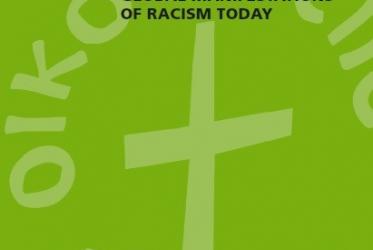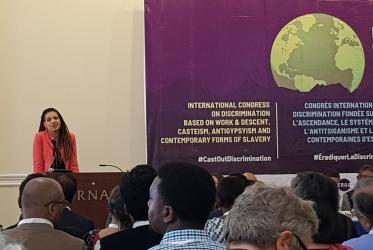Displaying 21 - 40 of 175
Ecumenical Review focuses on “Global Manifestations of Racism Today”
27 February 2020
WCC represented at International Sanitation Convention in India
18 October 2018
Dalit Liberation Sunday empowers grassroots in India
15 October 2018
A Light to the Nations.
The Indian Presence in the Ecumenical Movement in the Twentieth Century
15 April 2016












